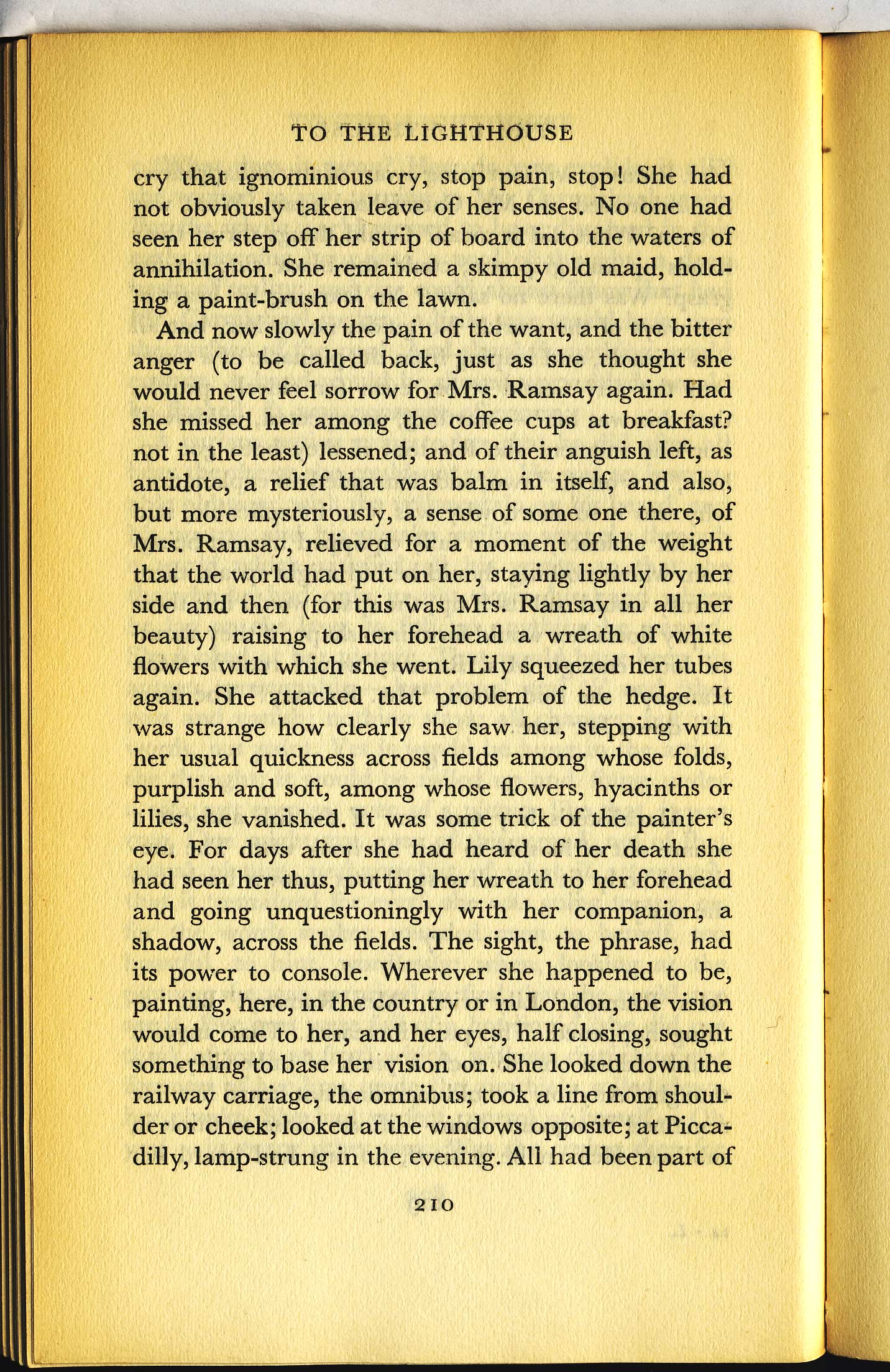
And now slowly the pain of the want, and the bitteranger (to be called back, just as she thought shewould never feel sorrow for Mrs. Ramsay again. Hadshe missed her among the coffee cups at breakfast?not in the least) lessened; and of their anguish left, asantidote, a relief that was balm in itself, and also,but more mysteriously, a sense of some one there, ofMrs. Ramsay, relieved for a moment of the weightthat the world had put on her, staying lightly by herside and then (for this was Mrs. Ramsay in all herbeauty) raising to her forehead a wreath of whiteflowers with which she went. Lily squeezed her tubesagain. She attacked that problem of the hedge. Itwas strange how clearly she saw her, stepping withher usual quickness across fields among whose folds,purplish and soft, among whose flowers, hyacinths orlilies, she vanished. It was some trick of the painter’seye. For days after she had heard of her death shehad seen her thus, putting her wreath to her foreheadand going unquestioningly with her companion, ashadow, across the fields. The sight, the phrase, hadits power to console. Wherever she happened to be,painting, here, in the country or in London, the visionwould come to her, and her eyes, half closing, soughtsomething to base her vision on. She looked down the
railway carriage, the omnibus; took a line from shoul-
der or cheek; looked at the windows opposite; at Picca-
dilly, lamp-strung in the evening. All had been part of
210









